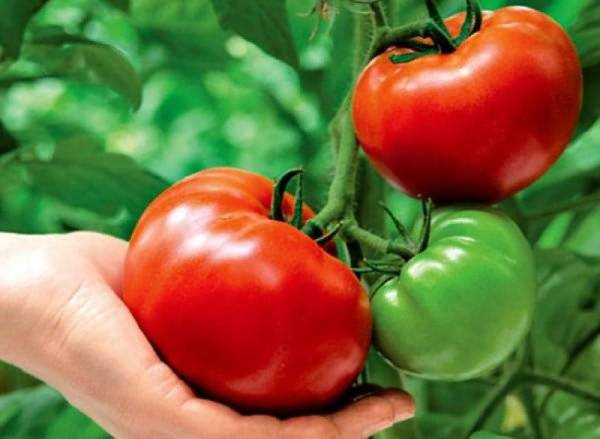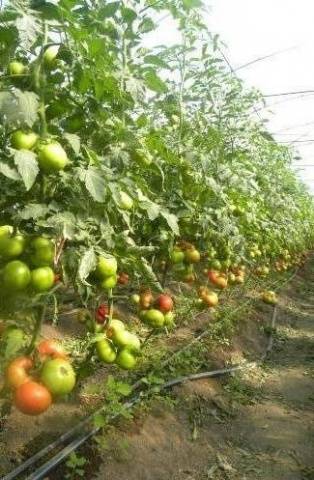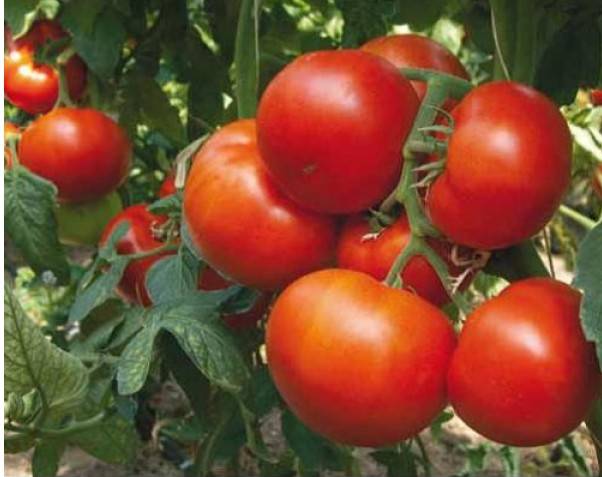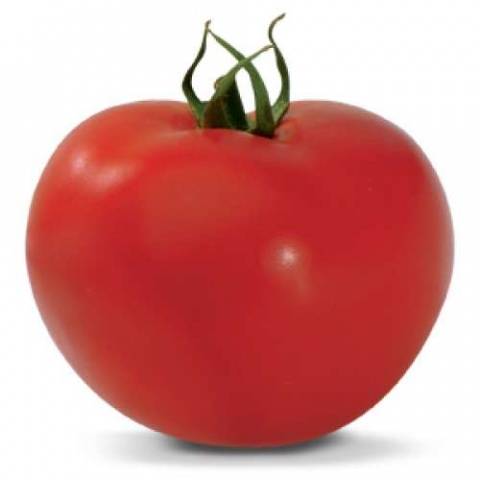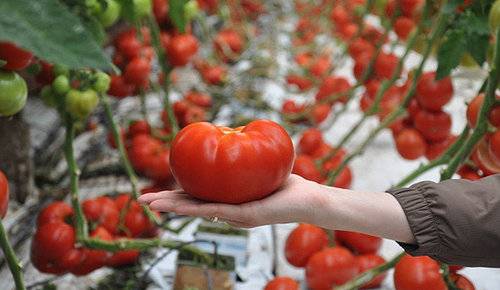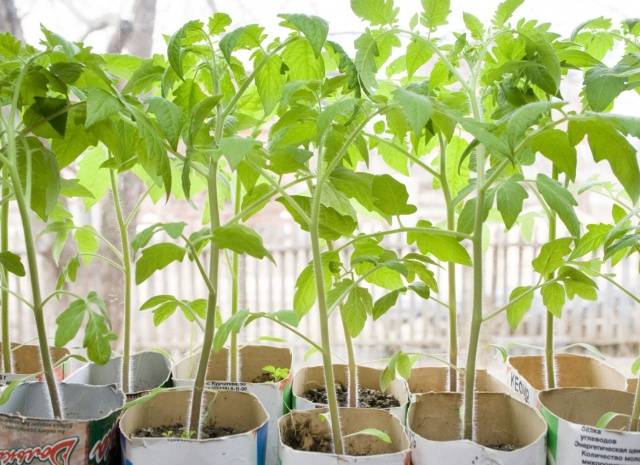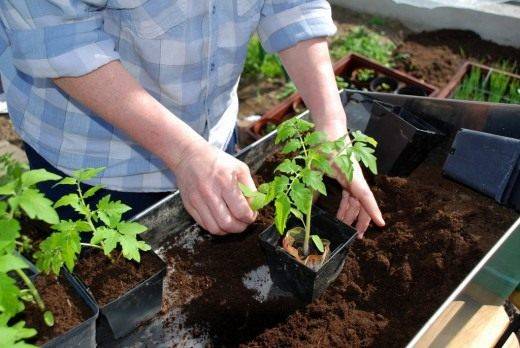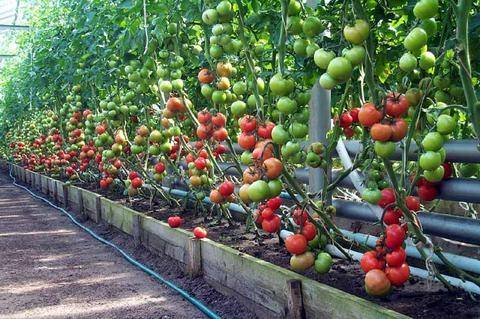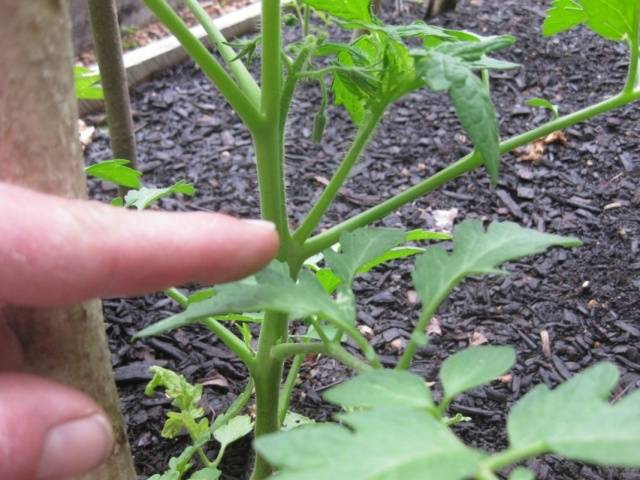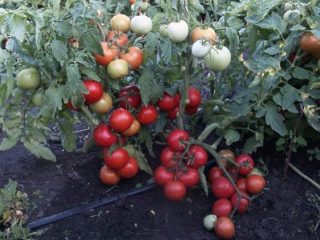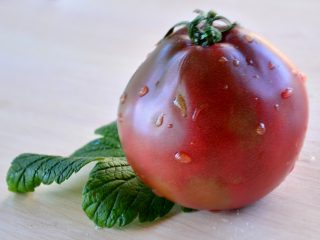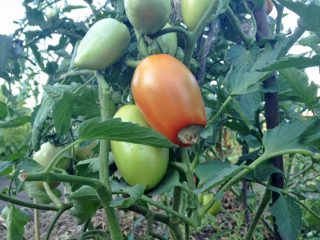Content
Everyone loves tomatoes for their bright, rich taste, which has absorbed all the aromas of summer. Among the huge variety of these vegetables, everyone will find for themselves the one that will best suit their taste preferences: dense beef tomatoes and the most delicate sweet cherry tomatoes, soft-tasting white-fruited tomatoes and rich orange-fruited varieties, bright as the sun. The list can be long.
In addition to their delicious taste, these vegetables have one more indisputable advantage: tomatoes are very useful. The high content of vitamins, antioxidants and lycopene make them indispensable in the diet of most people. Compared to the traditional cabbage, cucumbers and turnips that have long settled in our gardens, tomatoes can be called newcomers. And if varietal tomatoes were prescribed by gardeners for a relatively long time, then hybrids began to be bred only about 100 years ago.
What is tomato hybrid
To obtain hybrids, varieties with mutually exclusive properties are chosen. The science of genetics helps to select them most accurately. This takes into account the qualities that we would like to see in the new hybrid. For example, one parent will give him large-fruited, and the other - the ability to yield early yield and resistance to diseases. Therefore, hybrids have more vitality than the parental forms.
Most tomato hybrids are intended for commercial production of small, flattened fruits. Various canned foods are made from them. But there are also exceptions. For example, tomato Panekra F 1. Possessing all the attractive properties of tomato hybrids - high yield, excellent adaptation to any growing conditions and resistance to diseases, it gives consistently large fruits intended for fresh consumption. So that gardeners can better orient themselves when choosing tomato seeds for planting, we will give a full description and characteristics of the Panekra F 1 hybrid, as well as his photo.
Description and characteristics
The Panekra F1 tomato hybrid was created by the Swiss company Syngenta, which has a subsidiary in Holland. It is not included in the State Register of Breeding Achievements, since it did not pass the necessary tests, but the reviews of those gardeners who planted it are mostly positive.
Hybrid Panekra F1 is intended for growing in greenhouses. Its fruits are harvested in spring and summer. It belongs to indeterminate tomatoes, that is, it does not stop growing on its own. Thanks to this, the yield of the Panekra F1 tomato is very high. The fruits are leveled, retain their weight and size throughout the growing season, which allows you to get almost 100% of marketable products.
It sets fruit well even in extreme heat. Despite their large size, tomatoes are not prone to cracking.
Tomatoes Panekra F1 are very powerful, they have a developed root system, which allows plants to grow on any, even poor soils, getting food from the lower soil layers.
Hybrid Panekra F1 refers to early ripening - the first ripe tomatoes are harvested 2 months after transplanting.
Fruit characteristics
- hybrid tomato Panekra F1 belongs to beef tomatoes, therefore, the fruits are very dense, fleshy;
- dense skin makes them transportable, these tomatoes are well stored;
- the color of Panekra F1 tomatoes is dark red, the shape is round-flattened with barely noticeable ribs;
- on the first brush, the weight of tomatoes can be up to 400-500 g, in subsequent brushes it is slightly less - up to 300 g, this is how the entire growing period is preserved;
- the yield of the Panekra F1 tomato is simply amazing - it can form up to 15 clusters with 4-6 fruits each;
- fruits are intended for fresh consumption.
But even in private households, he will not be superfluous, as he is the leader in its segment.
When characterizing and describing the Panekr F1 hybrid, one cannot but say about its complex resistance to a number of diseases. He is not amazed:
- a tomato mosaic virus (ToMV) strain;
- verticillosis (V);
- fusarium tomato wilting (Fol 1-2);
- cladosporiosis - brown spot (Ff 1-5);
- fusarium root rot (For);
- nematode (M).
Panekra F1 - greenhouse tomato. Farmers grow it in heated greenhouses, so they sow seeds for seedlings very early and grow them highlighted so that they can plant seedlings in March. Most gardeners do not have heated greenhouses. They grow the Panekra F1 tomato in a conventional greenhouse.
Growing features
Indeterminate varieties and hybrids tomatoes are grown only in seedlings.
Growing seedlings
Seedlings of indeterminate tomatoes are ready for planting about 2 months after germination. Seeds are usually sown in mid-March. Syngenta company produces tomato seeds already treated with dressing agents and growth stimulants. They don't even need to be soaked before sowing. Dry seeds are sown into the soil, consisting of peat, humus and sod land, taken in equal parts. For each ten-liter bucket of the mixture, add 3 teaspoons of complete mineral fertilizer and ½ glass of ash. The soil is moistened.
For the initial cultivation of seedlings, a plastic container with a height of about 10 cm is well suited. You can sow seeds directly into individual cassettes or cups.
To keep warm, the container with the sown seeds is placed in a plastic bag.
After emergence, the container is transferred to a bright place. The temperature is lowered for several days to 20 degrees during the day and 14 at night. Then the optimum daytime temperature for seedlings is about 23 degrees.
If tomatoes are sown in a container, with the appearance of 2 true leaves, they are picked into separate cassettes or cups. At this time, a 200-gram capacity is enough for young sprouts. But after 3 weeks, it will be necessary to transfer to a more spacious container - about 1 liter in volume. The same procedure is carried out with plants growing in separate cups.
Water the seedlings as the surface layer of the soil dries up. Tomatoes Panekra F1 are fed every 10 days with a weak solution of complete mineral fertilizer.
The longer the internodes in indeterminate tomatoes, the fewer brushes they will eventually be able to tie.
Transplanting
It is carried out when the soil in the greenhouse has a temperature of at least 15 degrees. The greenhouse should be disinfected in the fall, and the soil should be prepared and filled with humus, phosphorus and potassium fertilizers.
The indeterminate tomatoes of the Panekra F1 hybrid are placed at a distance of 60 cm in a row and the same amount between rows. It is very useful to mulch the planted plants with a layer of mulching material 10 cm thick. Hay, straw, coniferous litter or wood chips will do. If you decide to use fresh sawdust, they need to be moistened with a solution of ammonium nitrate, otherwise there will be large losses of nitrogen. Over-matured sawdust does not need this procedure.
Hybrid care
Panekra F1 - intensive type tomato.In order for it to fully realize its yield potential, it needs to be watered and fed on time.
There is no rain in the greenhouse, so maintaining optimal soil moisture is on the conscience of the gardener. The most convenient way to do this is with drip irrigation. It will give the plants the moisture they need and keep the air in the greenhouse dry. The leaves of tomatoes will also be dry. This means that the risk of developing diseases caused by fungal microorganisms is minimal.
Tomatoes Panekra F1 are fed once a decade with a solution of complete mineral fertilizer with microelements.
This indeterminate hybrid tends to form many stepchildren, therefore, it needs to be compulsorily formed. It should be led in 1 stem, only in the southern regions it is possible to lead it in 2 stems, but then the plants need to be planted less often, otherwise the fruits will become smaller. The stepchildren remove weekly, preventing them from depleting the plant.
You can watch the video for more information about growing tomatoes in a greenhouse:
If you need a tomato with a high yield and excellent fruit taste, choose Panekra F1. He won't let you down.
